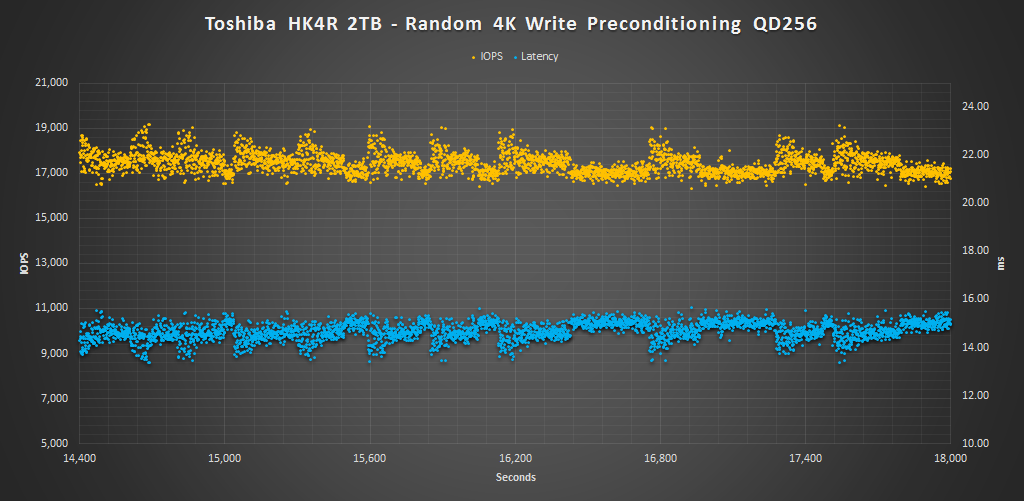4KB RANDOM READ/WRITE
In order to properly test random 4KB performance we first secure erase to get it in a clean state. Next, the drive is filled by sequentially writing to the RAW NAND capacity twice. We then precondition the drive with 4KB random writes at QD256 until the drive is in a steady state. Finally, we cycle through QD1-256 for 5 minutes each for writes and then reads. All this is scripted to run with no breaks in between. The last hour of preconditioning, the average IOPS, and average latency for each QD is graphed below.

With this closer look at our preconditioning data, we see while the average 4K write latency at QD256 is about 15ms and the average IOPS is 17K. In terms of the consistency, we can see that the HK4R doesn’t seem like the most consistent performer from these results, but with a less than 2ms range from 14-16ms and performance that surpasses the rated spec, it does a very good job here.


During 4K reads we can see that the HK4R is very competitive with the Samsung PM863 from QD8-32 and beats out the M510DC after QD4. These results are reflected when looking at latency. Up to QD16 the latency remains below 0.2ms and peaks at just under 0.35ms at QD32.


The 4K write results show the HK4R to be the slowest in the pack, which was to be expected when referring to the manufacturers specifications. What was good to see was that it exceeded the rating by reaching an average of 17K IOPS from QD 1-32. With that, latency reached just over 1.8ms at QD32.
 The SSD Review The Worlds Dedicated SSD Education and Review Resource |
The SSD Review The Worlds Dedicated SSD Education and Review Resource | 